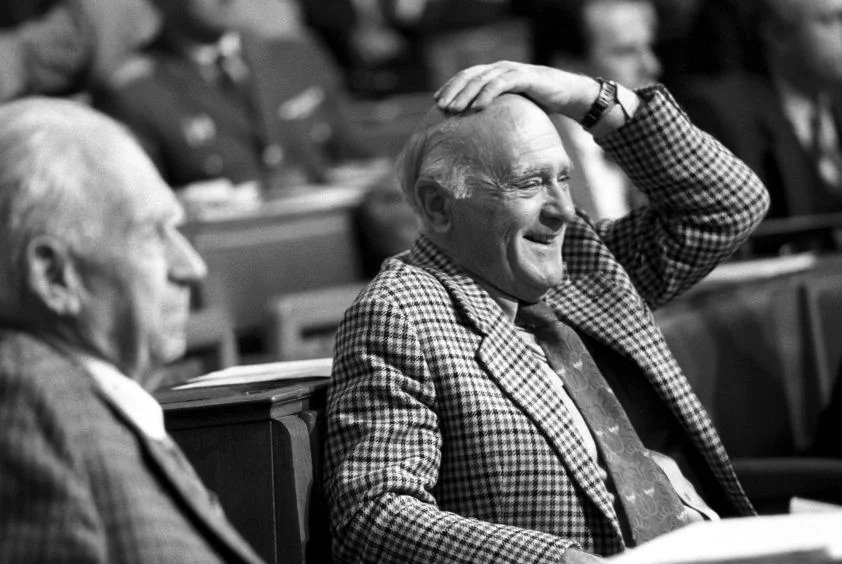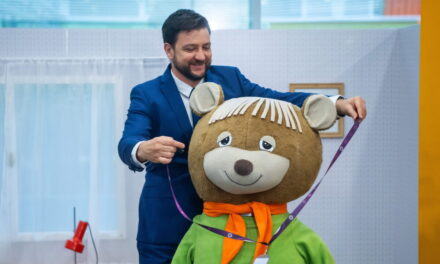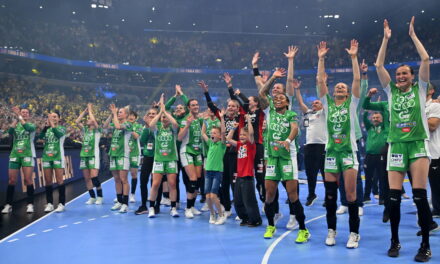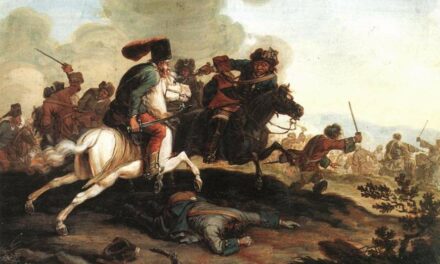The historian Zsuzsanna Borvendég's series was originally published on the PestiSrácok website, but there are certainly those who missed it. But those who haven't read all the parts should also read it again. Knowing the whole picture, can we understand how we got here?
Of course, MÚOSZ, working for the KGB, also continuously cooperated with the domestic secret services. One of the most obvious areas for covering up spies and intelligence officers - not to mention covert influence - is journalism ; this was especially the case during the Cold War. In order for the MÚOSZ to be able to successfully fulfill its tasks in the cooperation of the intelligence services of the Soviet bloc, it was necessary for an intelligence unit to operate within the institution , which was in direct connection with the Hungarian intelligence services.
The Press residency was founded for this purpose. The residency is an organization made up of official state security officers and network personnel, set up to carry out specific operational tasks, which operated in a conspiratorial manner. Its manager was the resident, who managed the execution of the tasks, trained and "educated" the network people entrusted to him, and reported on the work to the maintenance officer.
Beneficial collaborators
Since the regime change, the fact that almost all well-known journalists, television and radio personalities have since been found to have cooperated with state security has upset the mood. Knowing the logic of the Kádár system, there is nothing surprising in this, since the maintenance of total control was the same pillar of securing communist power in the period of consolidation as it was in the years of open terror that preceded it. The observation of society and the monitoring of the intellectual life and thoughts of intellectual circles could only be solved by personal presence in everyday life, so recruiting state security agents, analyzing the information received from them, and then manipulating the games played through them were established techniques of the party state.
However, these activities can be linked to the III/III Group Leadership, the role of the agents recruited by them - or informers as they are known - was indeed part of the essence of the system, but their judgment was deliberately derailed in the years of the model change. They are the ones, a significant number of whom did not voluntarily "sing" to the holding officers, but were too weak or vulnerable to resist threats and blackmail.
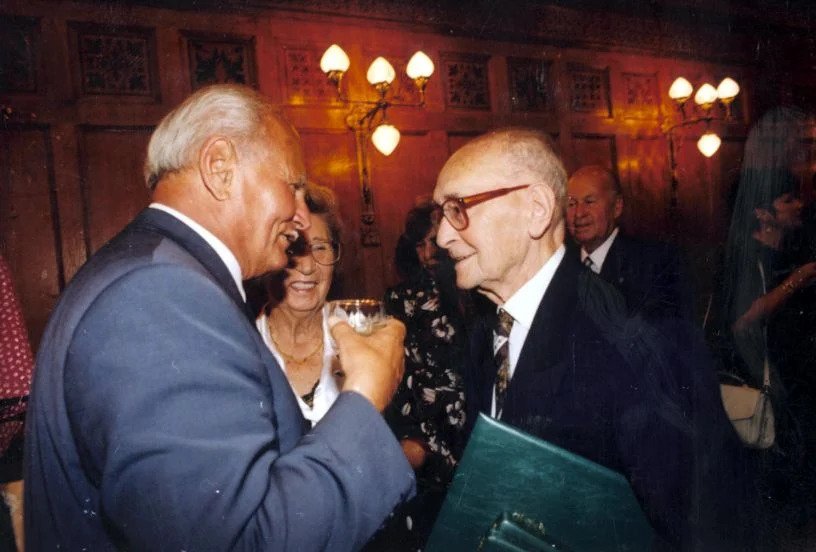
The President of the Republic Árpád Göncz - on the proposal of the Prime Minister - presented awards on the occasion of the feast of the founder of the state, King Saint István, on August 20. In the picture, Árpád Göncz congratulates journalist Dénes Polgár. MTI Photo: Attila Kovács
On the other hand, the Press residency belonged to intelligence, that is, to the III/I Group Chiefship; here it was not beneficial to apply pressure during recruitment, as they would have achieved the exact opposite of what they wanted. Intelligence primarily carried out its task outside borders, in the field of operations of enemy services, so reliability and commitment were the conditions for successful actions during missions. The Press residency therefore recruited its agents on a voluntary and principled basis, the journalists serving here - even if they were not part of the official staff - chose the cooperation for the sake of their own careers, in the hope of higher earning potential. This is especially true for military intelligence, MNVK-2, which, with some exaggeration, functioned like a wish show, because the winners did not undertake the tasks in exchange for a monthly allowance (this category is the same as the status of a BM agent), but in return for some kind of discount. They accomplished something for them, which was a real attraction, that is, the reciprocation was tailored to the individual. This could be an apartment, a car, university admission, placement abroad, a higher position, etc. Journalists working for press residencies were therefore not victims of the system, like simple informers in many cases, but servants of the party state, collaborators of the existing power.
It is therefore not surprising that we cannot unearth or research the documents of these organizational units by chance. The documents of the Press residency were lost during the model change period, allegedly destroyed , the MNVK-2. and his documents are still classified, we do not know the documents of the press office of the military secret service, nor do we know if they survived or if they were also shredded during the years of transition. (Or maybe later.) The media workers serving the Kádár system have therefore enjoyed protection since then, it is difficult to bring them before a moral tribunal, even though all this would be a very important moment of purification and justice.
Saved contacts, unchanged tasks
We are also aware that their role did not end with the fall of the party state. The relationship systems behind them - the holders of power of socialism, the leaders of the communist secret services, the representatives of the economic interests in the background - continued to use the well-known journalists and their ability to influence. And they knew their task, they were aware that the network would continue to provide them with a job and a privileged livelihood if their loyalty remained unquestioned. Written traces of this have survived despite the document destruction.
"The placements from the professional staff must be stopped once and for all. The way of the future is to win people from civilian life, who are adequately prepared, who are in a position, who have a positive attitude towards us, and try to somehow, mainly through their talent, put them in the right position" - Ágnes Hankiss quoted the document in one of the 1989 State Security from the minutes of the commander's meeting. And the "run" reporters, publicists, and journalists did/are doing their job, protecting/protecting the surviving networks.
Spies in the pantry
Although the documents of the Press residency were methodically destroyed, there are still scattered documents from which it is possible to reconstruct how and where this cover body for state security operated. The body of the Ministry of the Interior entrusted with press supervision was established in 1968. The relevant order stipulated that domestic intelligence residencies, i.e. operating in Hungary, must be established at those institutions that maintain relations with capitalist countries. The Press residency supervised press life from an intelligence point of view, that is, it kept in touch with the correspondents posted abroad, and Western journalists arriving in Hungary were guided and escorted by members of the residency, and their task was also to spread propaganda abroad. They included the National Association of Hungarian Journalists, the Information Office, the Hungarian Telegraph Office, radio and television, as well as the Press Department of the Ministry of Foreign Affairs.
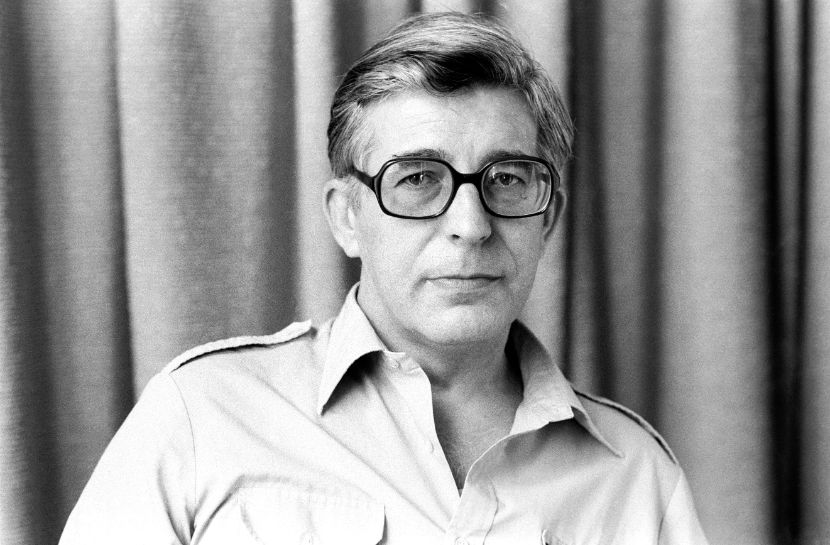
Jenő Bochkor, foreign correspondent of the Hungarian Telegraph Office (MTI). MTI Photo: Lajos Soós
In these places, the posted officers of the Press residency were also present, mostly in top secret positions (SZT officer), and they managed the operative network of the state security. When organizing the Press residency, III/I-11. (Third national and domestic-based intelligence) Department, then in 1978 the domestic-based intelligence departments - including the Press residency - were highlighted, and III/IB. It was reorganized as an independent subdivision.
Attractive service
In addition to the Press residency, the press office of military intelligence was at least equally important, but it may also have surpassed it in terms of effectiveness. MNVK-2. its winners operated much more "invisibly"; their collaboration was not associated with such general social contempt as with the BM's agent (informant) category, that is, the winning journalist could more easily account with his own conscience and did not have to fear that he would soon fall down and his winning status would be revealed. Their calculation actually worked, because until recent years we didn't even know this category: "won". (In the absence of documents, it is difficult to prove even today.) According to the recollections of former intelligence officers, the two secret services competed for the recruitment of the most qualified and well-known journalists , and for the reasons described above, the soldiers were often more successful in this field. Although they had fewer network people than BM, they were able to serve the organization's interests more effectively thanks to their fame and talent.
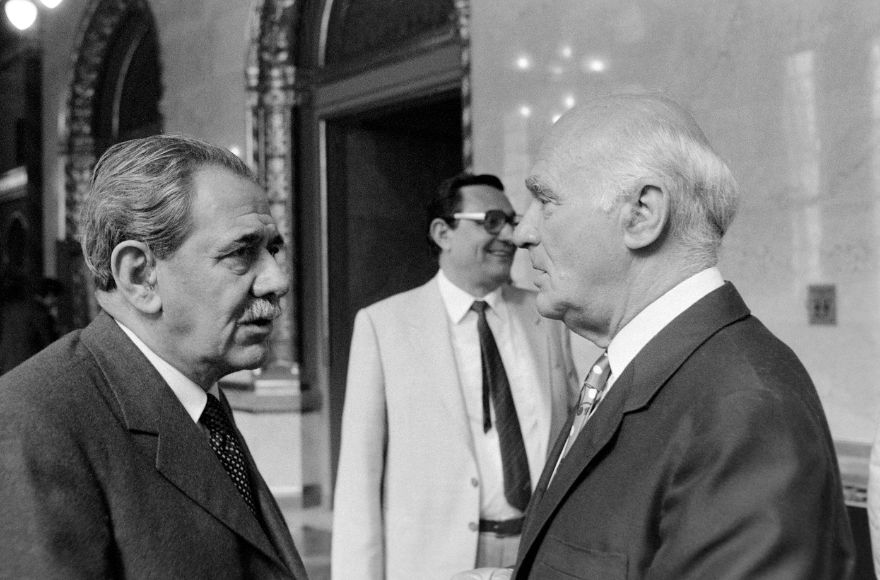
György Aczél, a member of the Political Committee of the Hungarian Socialist Workers' Party (MSZMP PB), talks with Sándor Barcs (j), a member of the Presidential Council, during the break of the inaugural session of the Parliament in the corridor of the Parliament. In the background is actor István Avar, member of parliament. MTI Photo: Tamás Fényes
With whom BM couldn't handle either
The rivalry between the two intelligence agencies is well illustrated by the following story. Sándor Barcs, who held the post of CEO of MTI between 1947 and 1980, was of course in constant contact with the Ministry of the Interior (and before 1953 with the state defense). His cooperation was not only expected in the field of information policy, but his personality was also important for intelligence gathering, as his help was needed in the selection of journalists assigned to foreign correspondent statuses and in the preparation of the annual travel plan. However, in addition to the internal affairs officers, Barcs was also surrounded by military intelligence, and their offer may have been more promising, as it seems that it was more grist to his mill. On January 12, 1970, the CEO of MTI assured the officers of the Press Residency that if we could propose a person with the right skills from anywhere (either from a newspaper or from the internal apparatus of our organization), he would be willing to immediately accept him into the status of MTI with a relatively high salary (financial frameworks are provided by the Agit. Prop. Committee) and post them to designated positions after a short training.
Nevertheless, two weeks later we can read the following note in a report from the Press residency:
"I report to the deputy head of the main group that, according to the information received from the head of the Press residency, Sándor Barcs is the general manager of MTI at MNVK-2. based on the discussion with his managers, he is preparing personnel changes in the line of foreign press correspondents that will weaken the positions of our group leadership."
What happened was that Sándor Sárközi , MNVK-2. his leader contacted Barcs and asked him to call home Dénes Polgár to delegate to the West German capital Jenő Bochkor Sárközi planned that Bochkor would work for Dénes Polgár for three months "to take over his important contacts from Polgár", during which time his salary would be paid by MNVK-2. will provide. Barcs fulfilled the major general's request, in exchange for which MTI's rural correspondents could use the URH network of the national defense, thus saving the news agency huge telex costs. As Barcs was not willing to give up this opportunity, he refused the BM's request to waive the personnel exchange and leave Dénes Polgár in his position for at least one more year.
Source: PestiSrácok
Author: historian Zsuzsanna Borvendég
(Cover photo: Sándor Barcs in the Parliament in November 1989. MTI Photo: Attila Manek )

